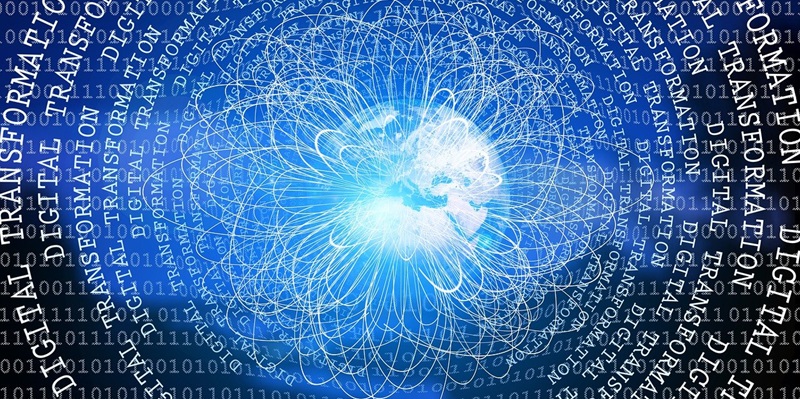The convergence of cloud computing, artificial intelligence (AI), and the Internet of Things (IoT) presents a transformative opportunity for Indian enterprises to lead global digital transformation. India is on the path to significant technological advancements, backed by a strong talent pool and strategic investments in these areas. By integrating AI’s data analytic capabilities with the cloud’s scalable infrastructure, businesses can optimize operations, enhance customer experiences, and develop innovative products.
Technological Integration
AI and Cloud Synergy: Revolutionizing Operations
Artificial Intelligence and cloud computing together offer a powerful combination to streamline operations and drive innovation. AI leverages cloud infrastructure to process vast amounts of data, generating actionable insights that can revolutionize traditional practices. For instance, AI algorithms can analyze customer behavior patterns to tailor personalized experiences, enhancing satisfaction and retention.
Moreover, the cloud provides a scalable platform that supports AI-driven applications without the need for significant upfront investments in infrastructure. This scalability is particularly crucial for enterprises looking to remain agile and responsive to market demands. By reducing the barriers to entry, the cloud enables businesses of all sizes to harness the power of AI for competitive advantage.
Real-World Applications: From Manufacturing to Healthcare
In manufacturing, AI-based predictive maintenance systems utilize cloud-processed IoT data to predict equipment failures before they occur, minimizing downtime and reducing costs. Simultaneously, in healthcare, AI combined with cloud computing allows for the analysis of vast medical datasets, assisting in early disease detection and personalized treatment plans.
The integration extends to smart cities, where connected IoT devices collect data on everything from traffic patterns to energy consumption. Cloud-based AI systems can then optimize resource allocation, enhance public services, and improve urban living standards. These integrations illustrate the vast potential and real-world applicability of combining AI, cloud computing, and IoT across various sectors.
Talent Development
Leveraging India’s Tech Talent
India boasts a rich talent pool of technology professionals eager to drive AI, cloud, and IoT advancements. Upskilling the workforce through targeted training programs and certifications is crucial for maintaining a competitive edge. This includes not only technical skills but also fostering a mindset of innovation and continuous learning.
Collaboration between industry and academia can further accelerate talent development. Universities can develop specialized courses tailored to the needs of the tech industry, ensuring a steady pipeline of skilled professionals. Such partnerships can lead to the creation of research hubs and innovation centers that drive the next wave of technological advancements.
Fostering a Culture of Innovation
Beyond formal education, fostering a culture of innovation within enterprises is essential. Encouraging experimentation and supporting intrapreneurship can lead to groundbreaking ideas and solutions. Companies can establish innovation labs where employees can work on cutting-edge projects without the constraints of traditional business operations.
Mentorship programs and hackathons can also play a significant role in nurturing talent. By connecting employees with experienced mentors and providing opportunities for creative problem-solving, enterprises can cultivate a dynamic and forward-thinking workforce ready to lead in the global digital arena.
Data Utilization via IoT
Connecting Devices for a Digital Ecosystem
The Internet of Things connects everyday devices to the digital ecosystem, generating immense volumes of data. These devices, ranging from sensors in industrial machinery to wearable health monitors, continuously produce data that can be harnessed for insights and optimization. By integrating IoT with AI and cloud computing, enterprises can make sense of this data, leading to more informed decision-making.
Industries can benefit immensely from this integration. For example, smart factories leverage IoT sensors to monitor production processes in real-time, while AI algorithms optimize workflows for maximum efficiency. In agriculture, IoT devices track soil moisture and weather conditions, allowing farmers to make data-driven decisions that increase crop yields.
Enhancing Customer Experiences
IoT data combined with AI can also significantly enhance customer experiences. Retailers can use data from connected devices to monitor inventory levels and automatically reorder stock, ensuring shelves are always full. Moreover, by analyzing customer interactions with IoT-enabled products, companies can gain insights into user preferences and tailor their offerings accordingly.
In the automotive sector, connected cars equipped with IoT devices gather data on driving behavior and vehicle performance. This information can be used to enhance safety features, improve vehicle maintenance schedules, and create personalized driving experiences. The possibilities for creating value with IoT-generated data are virtually limitless.
Entrepreneurship Ecosystem
Collaborating with Startups
India’s vibrant startup ecosystem, particularly in the domains of AI, cloud, and IoT, is a hotbed of innovation. Established enterprises can benefit significantly from collaborating with these startups. Such partnerships can yield disruptive solutions, fast-track market strategies, and open new market opportunities, accelerating digital transformation efforts.
Startups bring fresh perspectives and agility to problem-solving. By integrating startup innovations, larger enterprises can stay ahead of the curve, embracing new technologies faster than their competitors. This symbiotic relationship fosters a robust ecosystem where innovation thrives, benefiting both startups and established businesses.
Accelerating Digital Transformation
The convergence of cloud computing, artificial intelligence (AI), and the Internet of Things (IoT) paves the way for Indian enterprises to spearhead global digital transformation. With a robust talent pool and strategic investments driving this change, India is poised for significant technological advancements. The integration of AI’s data analytics capabilities with the scalable infrastructure of cloud computing enables businesses to optimize their operations, enhance customer experiences, and create innovative products. Cloud computing offers a scalable, flexible, and cost-effective solution for storing and processing large volumes of data. This infrastructure not only supports AI’s advanced algorithms but also enables real-time data analysis, driving more informed decision-making. Meanwhile, IoT connects various devices and sensors, generating substantial amounts of data. When businesses harness this data through AI, they can uncover valuable insights, foresee trends, and respond proactively to market demands. In essence, the blend of these three technologies can significantly elevate business processes and outcomes, positioning Indian enterprises as leaders in the global digital arena.

